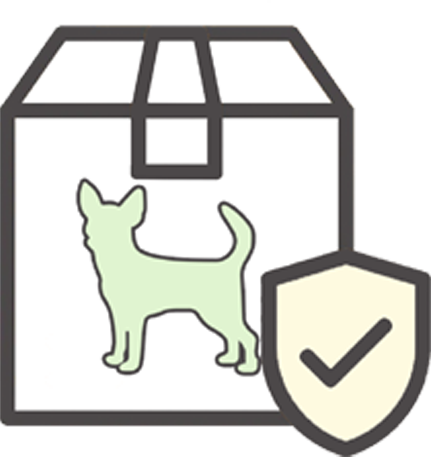Essential Oils For Dogs
Wednesday, August 22, 2018 12:01:03 PM America/Los_Angeles
Scent plays a major role in influencing emotions in humans. Smell is a critical primeval sense that is even stronger in pets. Your dog uses a strong sense of smell to gain different types of complex information from the environment. The information can be used to predict the states of energy they should adopt. It is important to remember that not all oils that benefit humans are good for your dog. Therefore, before introducing your dog into an aromatherapy approach, you need to know the safe oils and the types of oils that you should never expose your dog to.

Benefits of essential oils for dogs
Essential oils that are safe for your canine have the potential to ease anxiety, sooth joint pain, and relieve certain allergies. Your dog can absorb essential oils through inhalation, ingestion, and contact with the skin. Once the essential oils enter the bloodstream, they can be redistributed to various tissues very quickly.
The difference in biological affinity determines how aromatherapy experts choose essential oils that can target specific tissues. Small amounts of different compounds can have very powerful biological effects to various body systems. For example, lavender creates a calming effect because it has a powerful effect on the brain. Therefore, you can use small amounts of lavender oil on your DoggieLawn to calm your dog and make him feel comfortable. By Madeleine Steinbach via Shutterstock
How to choose the right essential oils
A poor quality essential oil is not only harmful, but can also be ineffective. An essential oil can be considered to be of poor quality if it was distilled from poor crops, has additives, is too old, or has been handled improperly. Here are some of the vital signs that you should look out for when choosing pure essential oils:
Latin name: If you are shopping online, be sure that the online store includes the Latin name alongside the oil’s common name. In fact, if the Latin name is not there, it is possible that what you are about to buy is a non-essential oil with a cheap perfume added to give it a random scent. For example, if you wanted lavender essential oil you should settle for a name like Lavender oil (Lavandula angustifolia).
Avoid cheap oils: Since it takes a large amount of plant oils to produce high-quality essential oils, cheap oils are often of low quality. For instance, you may require 200 pounds of lavender flowers to produce one pound of lavender oil. However, the quantity may increase or decrease depending on the type of essential oil.
Wild-crafted label: You should avoid the potential of pesticide contamination by buying organic oils created from plants. While popular brands have the USDA seal, it is crucial to look out for the wild-crafted label. Meaning, the plant that was used to produce the essential oil was harvested in the wild, and not just grown in some farm and sprayed with all sorts of chemicals.
Purity: The oil’s label should clearly indicate that it is a 100% pure essential oil. If you don’t see that sign on the label, it could mean that the oil has been altered and is not pure. An essential oil has to be pure to be effective on your dog.
Test for purity: You can also test the purity of your essential oils by placing a single drop of the oil on a piece of white paper, and check whether it forms an oil ring. A pure essential oil will not leave behind an oil ring, unless it has a deeper color and heavier consistency. Examples of pure essential oils that can leave behind a slight tint on your white paper include sandalwood, patchouli, and German chamomile.
Best essential oils that are considered safe for dogs
It is advisable to consult with your dog’s veterinarian in case your dog starts displaying any weird or persistent symptoms. Here is a list of some of the best essential oils that can be used safely for your pet’s first aid, and generally considered safe for dogs.
Cedarwood oil (Cedrus Atlantica)
Cedarwood has a powerful ability to kill and repel different types of pests such as fleas. The oil is a great expectorant for kennel cough and a good antiseptic for your dog’s lungs. It resolves arthritis, back pain, and the stiffness that usually occurs in older dogs. The oil can also eliminate dandruff and support kidney function. Some dog owners use the oil as a calming tonic for nervous aggression in dogs that are often shy and in need of a deeper sense of inner security, especially during potty training.
Lavender oil (Lavandula angustifolia)
Lavender offers a great calming effect for both humans and dogs. The soothing nature of lavender oil can help your dog get used to a safe space like fresh grass. The effect of this oil on the central nervous system makes it a perfect choice for helping with insomnia and certain allergies. The oil is great for reducing car anxiety or sickness in dogs. You should consider using lavender oil every time your dog is in a stressful situation such as when taking a trip to the vet.
Thyme (Thymus vulgaris)
You should expose your older dog to diffused Thyme to help him/her become stronger and climb stairs without too much difficulty. The essential oil has the ability to reduce inflammation in joints hence it can be used to cure arthritis and give your dog a better quality of life. It can also treat skin infections or irritations because it has antibacterial and antifungal properties.
Sweet Orange (Citrus sinensis)
Sweet Orange is great for repelling pests such as fleas. The Limonene substance in Oranges acts as a natural pesticide. The substance can kill bugs such as ants and flies on contact. The scent of Sweet Orange can also repel roaches and mosquito. Keep an insect-free buffer around your dog by using this essential oil. Oranges have a pleasant smell that can act as a deodorizer for a stinky dog or can be used around your dog potty or DoggieLawn. On the other hand, citrus creates a relaxed atmosphere around your pup.
It is important to remember that some of the essential oils that are good for dogs and horses may not be safe for your cat or birds due to their smaller body sizes. While certain essential oils are considered safe for dogs, you should take certain steps such as using them in small amounts at the beginning so as to allow your dogs to adopt the scent and be aware of how the scent affects them.

